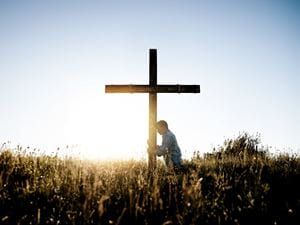
Prayer is the call to a collaborative relationship with Jesus. In prayer, we present ourselves and our needs nonstop before God. However, prayer isn’t just about us. As faith community members, we also pray for the needs of others. We pray for people and with people. The body of Christ is a body of prayer. In Matthew 21:12, Jesus promises that our prayers will have an effect.
Our prayers can change people’s life experiences. The blessings of God can be bestowed, and the sick can be made well. The prayers of the righteous are formidable and effective, according to the book of James. The Bible constantly affirms that God’s power is revealed in people’s lives when the faithful give themselves to prayer. Still, despite these affirmations, we don’t always see these things happen.
When our prayers are met with silence, we may question the fruitfulness of prayer. Have you ever wondered if prayer truly changes things at all? If we pray for someone to get better and they don’t, does this mean our prayers have failed? Questions overflow regarding our prayer lives. Can we trust God’s promise to answer our prayers? What does it mean when our prayers seem unrealized or unanswered? Can we trust that prayer changes things, even when we don’t see the changes?
What does the Bible say about prayer changing things?
We typically see prayer on the human side of the equation, meaning prayer is what we do or say. This can make us think that the power of prayer lies in our activity. Truthfully, the power of prayer lies in God’s gracious willingness to respond. The power of prayer is God’s power. He inspires us to pray, and God releases His power in the world when we pray. God’s presence, met in prayer, differentiates the Lord from every made-up idol or deity.
Prayer to an idol won’t change anything in your life because an idol is nothing but a creation of human hands. Psalm 115:5-7 reminds us that it has no spirit, life or strength. When Israel moved from Egypt to the Promised Land, they faced many nations whose idols and gods were powerless and distant. In contrast, Yahweh traveled with them, intervening for them. Deuteronomy 4:7 asks what other nation is so great that they have their gods near them the way our God is near us when we pray to Him? God hears His people’s cries. Not only does He hear them, but He responds. God’s desire to respond when we call means we can have confidence in our prayers.
John says our confidence in approaching God means He will hear us if we ask for anything according to His will, explicitly detailed in 1 John 5:14. God doesn’t answer our prayers out of obligation or duty but out of a loving delight to be in our lives. God’s power is linked to His love. We can be confident in experiencing these realities when we pray.
The meaning of ‘prayer changes things.’
One of the most fascinating facts about prayer is that it works. Prayer isn’t just about a theological doctrine or abstract principle. It’s not a religious placebo, something the faithful do to make themselves feel better, but ultimately holds no power. Prayer affects the world, changing things in our lives and the lives of others. This reality is continuously shown throughout the Book of Acts. The apostles became well-known for their power-filled prayers.
Prayer was an essential component of the apostles’ mission to the world, directly contributing to the spreading of the gospel. The apostles didn’t’ only talk a good game; they changed people’s lives. There are numerous cases. For example, when a faithful woman named Tabitha died, people immediately called Peter to come. When he got there, he didn’t speak to the grieving about the reality of heaven or lend a comforting ear. Instead, Peter came into the room, kneeled, and prayed. In this story, Peter tells Tabitha to get up and in response, she opens her eyes. According to Luke, this story became known throughout Joppa, and many people believed in the Lord, as detailed in Acts 9:42. People think because of the gospel and because of what Tabitha experienced as a result of prayer.
However, the interesting thing about this event is that it coincides with a similar event in Jesus’ life. Jairus, a synagogue leader, asks Jesus to heal his daughter, who was close to death. Jesus agreed but was delayed in arriving at Jairus’ house. When the two arrive, someone tells Jairus that his daughter is dead and he shouldn’t bother the teacher anymore. Surprisingly, Jesus responds that the girl isn’t dead, receiving mockery from the crowd. There wasn’t a misdiagnosis, and people weren’t confused about her condition. Jairus’ daughter was dead, and the crowd thought nothing more could be done.
Still, Jesus knows differently. He goes to her room and tells the girl to get up. Immediately, she gets up and starts walking around. Did you notice that Peter and Jesus used the exact words? The link between these two accounts suggests that Peter’s prayer directly correlates to the power of Jesus working through him, which happens repeatedly. John, Peter, Barnabas, Paul, Stephen, and Philip are all recorded to have healed people through prayer. Jesus’ power is manifested in the lives of the faithful. In prayer, the dead are raised, and the sick are made whole. This concept may seem farfetched today, but such incidents are presented as fact.
The apostles’ ministry wasn’t one of empty words. Instead, they came with a demonstration of the Spirit’s power, as detailed in 1 Corinthians 2:4. It’s a historical fact that the early Christian community changed the world when they were fueled by prayer. It’s easy to accept that prayer changes things when we see it happen in our lives because the change is apparent. The job is found, the sickness ends, and the relationship is saved. As pleasant and good as it is, this change is only on the surface. The true power of prayer to change things is found in the inner evolution that happens.

